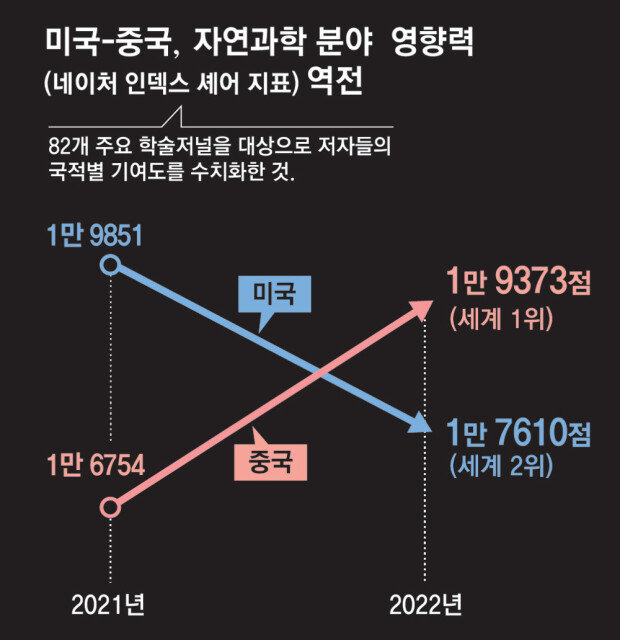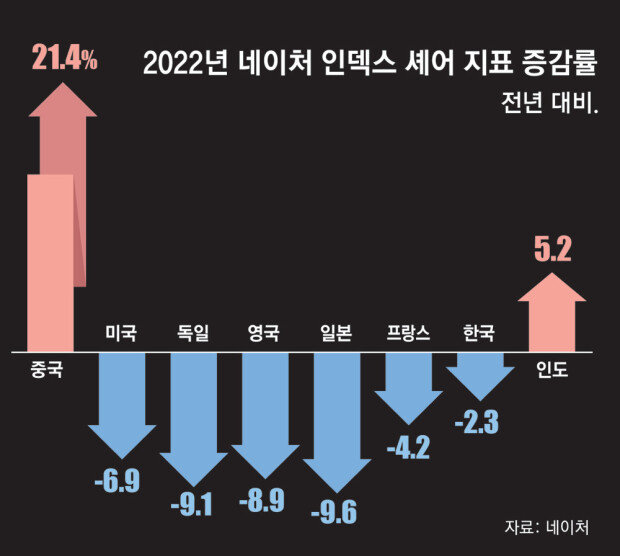Scientific power shift: China overtakes the U.S.
Scientific power shift: China overtakes the U.S.
Posted September. 20, 2023 09:28,
Updated September. 20, 2023 09:28


China's scientific and technological prowess has reportedly surpassed that of the U.S., solidifying its status as the foremost influence in scientific circles. Reduced R&D collaboration between the U.S. and China due to escalating tensions is seen as a factor unintentionally contributing to China's growing scientific influence. Some even express concerns that efforts to exclude China from cutting-edge technology supply chains, like semiconductors and batteries, could bolster its dominance in another area.
On Tuesday, sources within the scientific community disclosed that the prestigious global science journal Nature published an analysis report in August, focusing on China's growing influence in scientific R&D. In essence, the report attributes China's expedited quest for technological independence to the escalating tensions between the U.S. and China. It draws parallels with the case of Huawei, which managed to develop advanced semiconductors despite U.S. sanctions, and how this success story is extending into the realm of scientific research.
Nature reported a continuous decline in U.S.-China cooperation activities since 2020, with a 15% drop in 2022. The U.S. has imposed bans on Chinese devices and components and restrictions on joint research with Chinese experts, particularly in fields like quantum computing.
An increasing number of Chinese scientists are returning to China after conducting research in the U.S., significantly boosting China's research capabilities. In June, Nature reported in its Nature Index Share that China surpassed the U.S. in terms of influencing science and technology, scoring 19,373 in the index, a 21.4% year-on-year increase, while the U.S. scored 17,610, marking a 6.9% decline. This shift marks the first time that the quantity and quality of scientific dissertations from China have outperformed those from Nature's analysis and explores the potential reasons behind China’s dominance.
"The National Foundation for American Policy warns of substantial economic losses for the U.S. due to the increasing number of Chinese scientists not completing their Ph.D. programs. Their forecast indicates that blocking 1,000 Ph.D. candidates each year could result in a loss of one billion U.S. dollars in tuition fees and an estimated 210 billion U.S. dollars in potential patent value over the next decade.
Global industries are preparing for potential shifts, as China's competitive scientific research suggests it could lead to future industries. Efforts to decouple from China in industrial technology have been persistently cautioned that this disconnection may inadvertently boost China's capabilities, contrary to initial expectations.
jwchoi@donga.com







